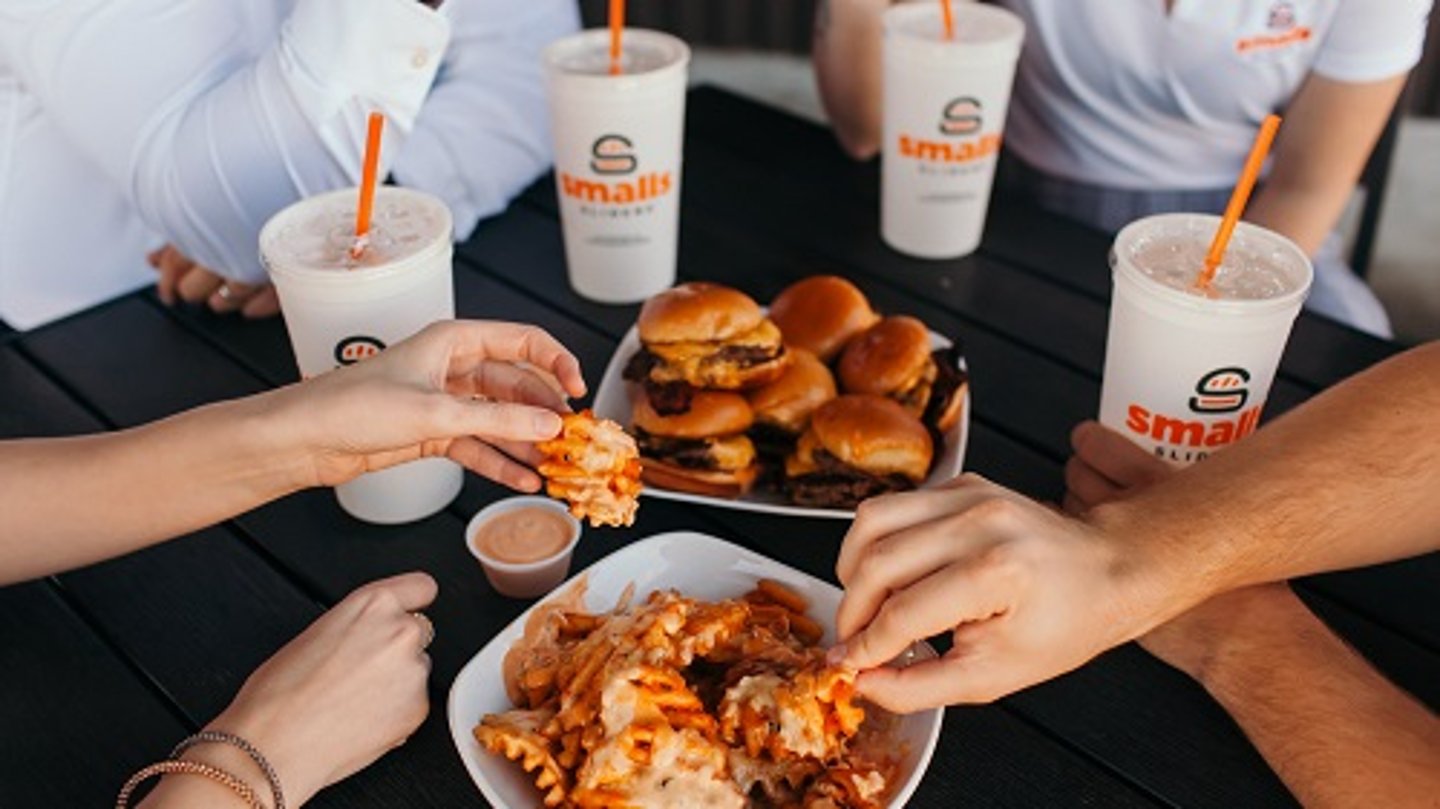HT Talks Tech with Kris Douglas, VP of IT at Smalls Sliders
Hospitality Technology (HT) caught up with Kris Douglas, VP of IT at the up-and-coming brand Smalls Sliders. Douglas just recently joined the QSR; he previously led IT strategy and PMO
execution at Inspire Brands (Arby’s, Baskin-Robbins, Buffalo Wild Wings,
Jimmy John’s, Sonic and Dunkin’) and was primarily responsible there for enterprise M&A-integration and restaurant technology strategy development.
Established in 2019, Smalls Sliders is the brainchild of Founder Brandon Landry, with former pro-football NFL quarterback Drew Brees joining him as an initial investor, and is backed by industry veterans at 10 Point Capital. There are 9 locations to date and another 60 in the pipeline.
HT: For our readers who may not have heard of Smalls Sliders, how would you describe it?
Douglas: Smalls is a industry disruptor based off of an innovative concept that we're trying to infuse into this that hasn't been done before. And what I mean by that is, we are leveraging a modular design that is created from recycled cans. And these buildings are fashioned to open a restaurant from a dirt-to-turn perspective between 8 to 10 weeks.
Once a parcel of land is found, we're able to literally drop a "can" (a.k.a. one of our modular buildings). We're not doing any development or brick-and-mortar construction... We open a business within the span of 8 to 10 weeks, which we're also trying to expedite as well. So as you can imagine, that is something completely unique in this space.
And then on top of that... We're really focused on the menu and on providing a quality product to the guests, so over indexing on quality and keeping our menu limited. It's something that I have not seen in my experience in the industry.
HT: How many locations are there?
Douglas: We have nine locations in the Louisiana Territory to date. We just opened our ninth location Wednesday (July 19) in Lafayette ... Additionally, we're looking to expand our portfolio. So, we're going to be dropping some additional 'cans' later this year. You'll start to see them pop up in Louisiana, and we plan to enter the Georgia and Florida markets here shortly, so we're really excited about that.
HT: What is the average square footage of this modular building?
Douglas: This is an 800-square-foot modular can. We do also offer an awning with a patio concept. We're predominantly an off-premise business. We're heavily focused on drive-thru. So there's an opportunity to walk up and place orders, but we also facilitate dual lane drive-thrus and a patio area if people want to sit outside on premise and indulge and eat some of our products.
HT: Tell us a little bit about your background and how you got involved in technology.
Douglas: So my background is a little varied. I like to say I've gone full circle. My first job was in the QSR space. I was working at a restaurant when I was in high school over the summers, but then professionally after college, I started in healthcare space working in medical devices and diagnostics from a tech perspective. And then I transitioned into news, consulting, and then re-entered food and beverage.
I've been in QSR for the last 10 years. And I've been 100 percent in the tech field and learning how technology is used in all of these industries to fuel business. And it's been a great maturation process to understand, to watch the field expand and become infused in every functional aspect of business today.
HT: When it comes to Smalls, it sounds like sustainability is a real big point of difference in the concept? Is that correct?
Douglas: Oh, it is. Sustainability is going to be a strategic pillar for us to focus on because of our modular design. So ensuring that we are able to leverage recyclable cans [to create our buildings] and then focusing on our carbon footprint is [very important as we] redefine our growth strategy and work to propel us into the future.
HT: Can you tell us about what kind of technology you plan to add or tweak at Smalls?
Douglas: Definitely. And I would say that to-do list is definitely going to be exciting and dynamic. Philosophically, we view technology as a strategic enabler of the brand. Literally at the epicenter of what we would deem the customer experience. The individuals that experience our products, but even the team members that work with us. Technology is going to be the conduit that propels us to the future.
We are literally reimagining how we do technology today, and that's top to bottom, and figuring out how do we do it in the most efficient and simplistic way that allows all of our customers to have a cohesive experience while they are participating in a Smalls. Whether that be going through the drive-thru or working with us, we want it to be a ubiquitous technology experience.
HT: Is there currently a loyalty program?
Douglas: No, but that is something that's also on our fast-approaching list. We're looking to revamp our whole digital presence, which is inclusive of loyalty. And then also other delivery accelerators, the things that aren't in our ecosystem today that we definitely think can provide tremendous value for us going forward.
The whole digital strategic roadmap and layout is being reimagined today and that's at the top of my to-do list right now… I think for all technology leaders and executives in this space, you had to become very nimble and agile to adjust to trends and or the customer experience as things change. Whether that be federal regulations, municipality constraints or how we ensure that the customers are having a beneficial and good experience with our brand if we're no longer able to operate in the traditional manner.
You can become inundated with so many different next gen opportunities that the question becomes, ‘What do I select and what's right for me?’ So I think there's, it's like a two-step process. It's first the awareness and understanding the landscape of the tech ecosystem, and then understanding as a leader within your brand, what's going to be the application that's going to be most beneficial for us.
HT: What do you enjoy most about restaurant technology?
Douglas: It's the fact that it's ever-changing and dynamic. Typically technology would recycle every five to seven years. The platforms would get more advanced. We would be migrating to new systems. But now, it's been flipped on its head and everything is accelerated. So, it's really disrupting itself in a shorter duration. More than we've ever seen historically. So it's always an opportunity to constantly learn and understand what worked yesterday may not be the correct decision for tomorrow. And what is that intersection, right? How do we navigate it? Strategically put ourselves in the best position. So it keeps my brain working. I'm one of those guys that loves to learn. I'm always trying to learn something different. So this feeds my soul.




